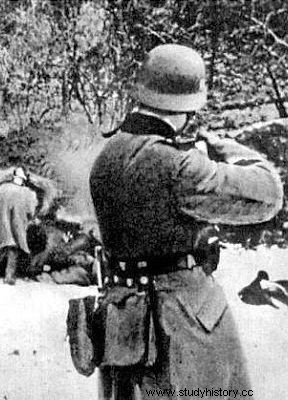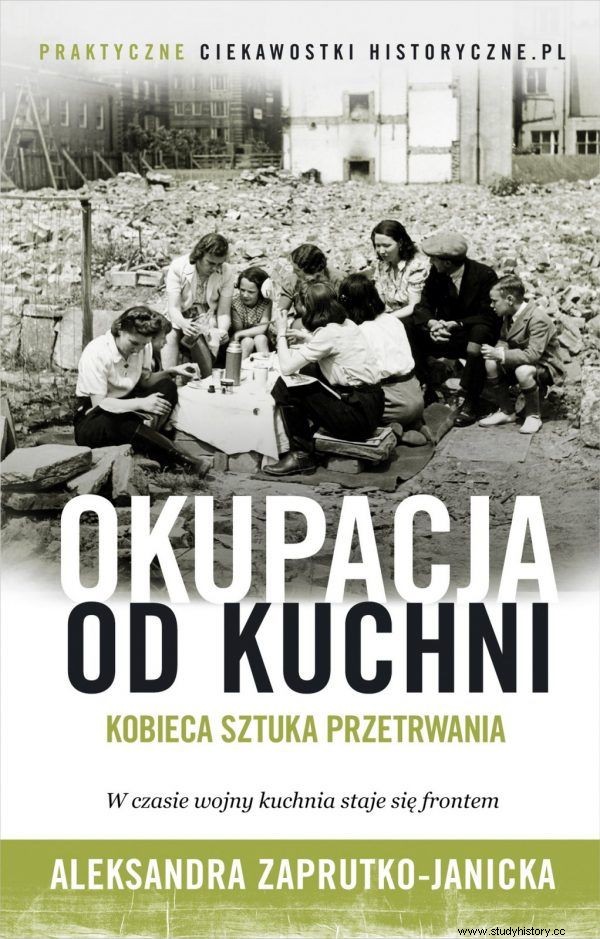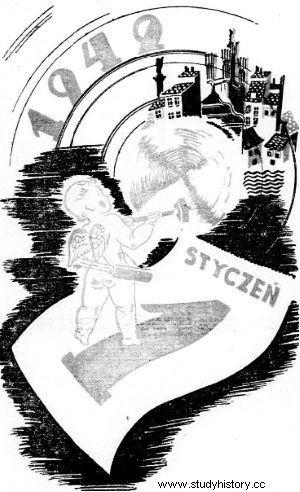The champagne cools down, the kitchen is filled with party treats, and everyone is getting ready to welcome the New Year. In occupied Poland, one could only dream about it. The Germans did everything to disgust the Poles even on New Year's Eve. After the September 1939 campaign, they simply ... banned it.
Before the war, truly champagne New Year's Eve and carnival balls were organized in the cities. The poor and the rich were raving around. Various professional groups held their own parties, trying to keep their fun on everyone's lips.
How could they match it by celebrating New Year's Eve, when the country was in mourning and the occupiers poured a bucket of cold water over people's heads in the form of severe restrictions?
Forbidden New Years Eve
The Krakow city commissioner, with the support of the head of the SS and police units, banned everything. The curfew from December 31st to January 1st started in the city at 10 pm, with no reduced fare for wishing New Year's greetings to neighbors at midnight.
In addition, any dance games in private and public venues were forbidden. The sale of alcohol was also censored.
In the entire territory of the General Government on New Year's Eve from 8 p.m. a total ban was in force its distribution to the so-called local population. Needless to say, the Germans also forbade the lighting of fireworks and all other forms of greeting the New Year.

How to celebrate when people are dying from German bullets in the streets?
It is hardly surprising the mood that prevailed in Polish homes on the last day of December. People supposedly wanted to have fun, but all the time, somewhere in the back of the head, shots sounded in the streets and information about mass murders was rattling. In the following years it did not get any better.
Under the sign of mourning ...
This is how Hanna Wustinger-Wodzicka remembered New Year's Eve in 1943, who fought in the uprising as a nurse seven months later:
The atmosphere was tense. Street executions intensified, which deprived the elderly and the mentally weak of any hope for freedom.
To improve the mood, we decided to have a New Year's Eve. You danced to the records, but not much came out of it.
Some played bridge, others talked about the most important things. It was approaching midnight.

The female art of survival in Aleksandra Zaprutko-Janicka's book "Occupation from the kitchen". Click and buy with a discount on empik.com .
At midnight, instead of fireworks, there were the sounds of "Mazurka Dąbrowski", played full volume from a piano. Surprisingly, no one informed the Germans and the Gestapo knocked on the door.
The longing for normality to drown in the moonshine
There was no question of a classic celebration at a lavishly set table. Champagne, once indispensable, was now a luxury item. Of course, it was possible to buy it on the black market, like other quality spirits, for heavy money.
It was a product for wealthy crooks, blackmailers and collaborators. In ordinary Polish homes, as an erzac of decent alcohol, domestic moonshine, driven to power in the occupied country, had to suffice.

Nazi propaganda postcard. When ordinary people broke down in the face of difficult reality, the Third Reich celebrated the Christmas star with pomp.
Maciej Dobrzycki, born in 1931 in Sosnowiec, recalled years later:
The area was famous for moonshine, and already in our house the moonshine was front brand. Our tenant, Mr. J., was a champion in this industry, so he had plenty of clients. You could "buy" anything for moonshine and thanks to that poverty did not bother you so much.
The underground soldiers did not spare themselves when it comes to drinking, regardless of their affiliation. Both the Home Army and the People's Guard celebrated the holidays with alcohol. Jan M. Jakubaszek, a Warsaw insurgent who had to go into hiding, spent his last Christmas holidays with his friends at his hand-made moonshine.
 There is no doubt that they also poured the same "moonlight" on the coming of the New Year. In his memoirs entitled My last year of war , Jakubaszek even revealed the method of its production:
There is no doubt that they also poured the same "moonlight" on the coming of the New Year. In his memoirs entitled My last year of war , Jakubaszek even revealed the method of its production:
Rude way, but with good results. We used three bowls for this. The first with the mash was placed just above the fire, the second with the alcohol, and the third with the cold water on which the alcohol had condensed.
***
The article was based on materials collected by the author while writing the book "Occupation from the kitchen". Click and buy your copy at empik.com with a discount.
"Okupacja od Kuchni" is a moving story about the times when illegal pig slaughtering could lead to Auschwitz, vegetables were grown in the courtyards of tenement houses, and used coffee grounds were traded on the black market. It is also an amazing cookbook:full of original recipes and practical tips from 1939-1945. We recommend!
